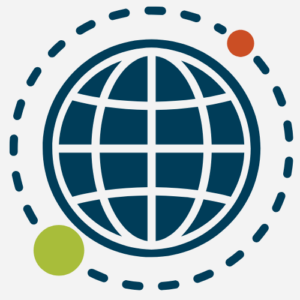The wider statistics and data ecosystem
Key facts
Intermediaries have an important role in linking producers of statistics and data with the people who use them
The wider ecosystem
This guide focusses on the UK official statistical system, however this does not exist in isolation. The wider statistics and data ecosystem should be considered when looking at the UK statistical system. External influences shape the context within which the system operates.
Some of these external influences are:
- External data producers (those creating data or statistics outside of the statistical system)
- Intermediaries (those linking producers and users of statistics and data)
- Professional bodies for statisticians
- International organisations and producers
External producers
Statistics and data production is not unique to government: they are also produced by academics, the third sector, private companies, and parts of the public sector beyond government. This can be to improve understanding of a topic, as market research (which may play a similar role in public consciousness as official statistics) or also to assess and improve their own competitive advantage. Individual citizens can choose to use these statistics in addition or in replacement of official statistics. They can also freely access some data and can choose to pay for even greater access.
Reflections from Wesley Yung in a report titled ‘the evolution of official statistics in a changing world’ describe how data availability in combination with open-source software and free cloud computing services mean that ‘everyone with an interest and some training can be an analyst’ and can share their analyses with the world.
This has led to an abundance of data and research which was not present a few decades ago and has necessitated shifts in statistical systems globally. The United Nations Economic Commission for Europe (UNECE) described this in 2022 when looking at the value of statistics, in terms of how it means that statistics producers must re-think their role in an increasingly commercialised environment.
Intermediaries
Intermediaries are the link between statistics producers and the users. There are many different types of intermediaries – they could be the mainstream media, individual citizens sharing statistics on social media, or organisations such as the Institute for Government.
The Public Confidence in official statistics survey (2021) found 42% of respondents said they saw statistics in the news daily, demonstrating the influential role that the media and journalists have. This role was explored in 2022 research by the Economic Statistics Centre of Excellence (ESCoE), the role of journalists in economic statistics, which used the ONS labour market release as a case study. They made several recommendations for how to improve labour market communications to the wider public through media reporting.
Professional bodies
Professional bodies are organisations made up of members of a specific profession. Statistical professional bodies play an important role in the statistics and data ecosystem.
In the UK, the primary professional body for statisticians and data analysis is the Royal Statistical Society (RSS), although RSS members do not need to be UK-based. Two of the RSS’s strategic goals are developing the profession, for which they provide training, and strengthening the discipline, for which they organise events such as annual conferences and publish a monthly magazine. These types of activities are often participated in by members of the statistical system, and as such this professional body supports the system to flourish.
The RSS and other professional bodies also influence the statistical system in other ways. For example, the 1990 RSS paper ‘Counting with Confidence’ proposed that the UK needed a statistics Act to safeguard the autonomy and constitutional position of official statistics. This paper was cited in the 1998 government green paper ‘Statistics: A Matter of Trust’, which fed through to the 1999 white paper ‘Building trust in statistics’. The 1999 paper included a commitment to review the need for legislation, paving the way for the development of the 2007 Statistics and Registration Service Act that underpins the statistical system to this day. This demonstrates how research and campaigns by professional bodies can greatly influence the statistical system.
International statistical systems
The Government Statistical Service (GSS) International Strategy states that ‘our ability to shape international standards, influence global agendas and access comparative data will strengthen the UK’s position in an increasingly data-driven world’, demonstrating why the UK is driven to engage internationally.
The Eurostat webpage on international organisations also explains why international co-operation is so important: ‘to build on best practices and to improve the coordination of methods as well as the comparability and quality of data… to guarantee integrated systems of collection, processing and dissemination of data.’ For these reasons, the international statistics stage naturally influences the UK statistical system.
The statistical systems of many countries are described on the United Nations Statistics Division (UNSD) page on country profiles. The UK system is considered to be more decentralised than others, and is also unusual in having a dedicated regulator separate from statistical production. In addition to National Statistical Institutes, there are also international organisations such as the UNSD, the International Statistical Institute (ISI) and Eurostat.
International organisations set out methods, definitions and principles that have global influence, for example the Fundamental Principles of Official Statistics, the ten principles of which the UK is signed up to.
Back to top




